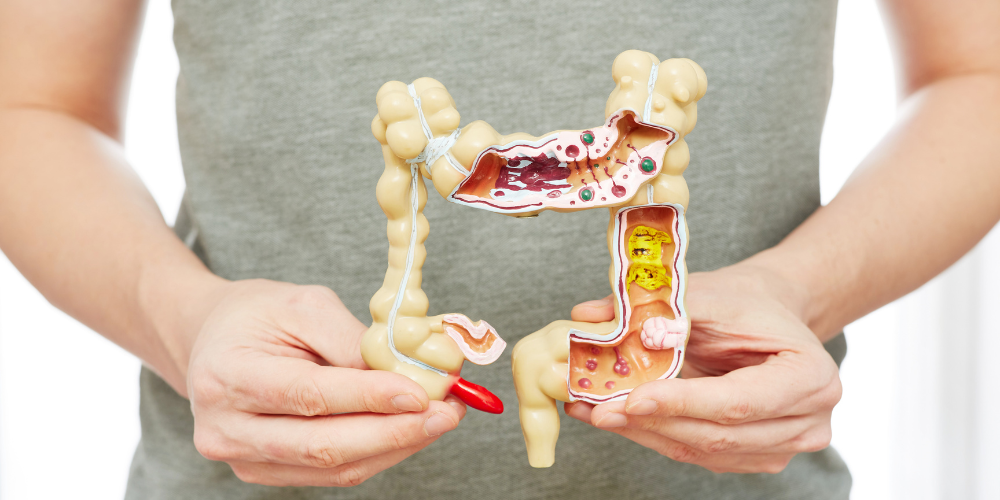Constipation is a common digestive complaint affecting millions of people in India and around the world. While occasional constipation might not raise major concerns, chronic constipation can significantly impact your health and well-being.
Understanding Constipation
Before we explore the side effects, let’s establish what constipation is. Generally, constipation is defined as having fewer than three bowel movements per week, difficulty passing stool, or a feeling of incomplete evacuation.
Common Causes of Constipation
Several factors can contribute to constipation, including:
- Diet: Lack of fiber intake, dehydration, and excessive consumption of processed foods can slow down digestion and lead to constipation.
- Lifestyle: A sedentary lifestyle, ignoring the urge to have a bowel movement, and changes in routine can disrupt bowel habits.
- Medications: Certain medications, like pain relievers and antidepressants, can have constipation as a side effect.
- Medical Conditions: Underlying medical conditions like irritable bowel syndrome (IBS), thyroid disorders, and neurological problems can also cause constipation.
The Spectrum of Side Effects
Constipation is often considered a minor inconvenience, but the side effects can be far-reaching and impact various aspects of your health. Here’s a closer look at some of the common consequences:
- Digestive Discomfort: This is the most immediate and noticeable side effect. Straining during bowel movements can lead to abdominal pain, cramping, and bloating.
- Hemorrhoids: Straining can also worsen hemorrhoids, which are swollen veins in the rectum and anus. This can cause further pain, bleeding, and discomfort.
- Anal Fissures: Hard stools can tear the delicate skin around the anus, leading to anal fissures. These tears can be excruciatingly painful and make bowel movements even more difficult.
- Fecal Impaction: Chronic constipation can lead to a buildup of hardened stool in the colon, known as fecal impaction. This can cause severe pain, abdominal distention, and even bowel obstruction.
- Nutrient Deficiencies: When stool remains in the colon for extended periods, the body may not absorb nutrients effectively. This can lead to deficiencies in vitamins, minerals, and electrolytes.
- Decreased Appetite and Weight Loss: Constipation can lead to a feeling of fullness and bloating, often causing a decrease in appetite and potential weight loss.
- Fatigue and Low Energy: Constipation can disrupt sleep and hinder the body’s ability to absorb nutrients, leading to fatigue and low energy levels.
- Mental Health Impact: The discomfort, pain, and frustration associated with chronic constipation can negatively affect mental health, causing stress, anxiety, and even depression.
Beyond Physical Health
The impact of constipation extends beyond physical health. It can significantly disrupt daily life. People with chronic constipation may:
- Avoid social situations due to fear of being unable to find a restroom.
- Experience difficulty concentrating at work or school due to discomfort.
- Have a decreased quality of life due to the constant struggles with bowel movements.
When to Seek Help for Constipation
If you experience constipation occasionally, dietary and lifestyle changes might be enough to manage it. However, if constipation becomes chronic (lasting for weeks or months) or interferes with your daily life, it’s crucial to seek medical attention.
Treating Constipation in India
At Gastro Liver Care, we understand the challenges associated with constipation and offer comprehensive treatment plans tailored to your individual needs. Our team of experienced gastroenterologists, including myself, Dr. Pawan Rawal, will work with you to diagnose the underlying cause of your constipation and develop a treatment plan that may include:
- Dietary modifications: Increasing fiber intake, staying hydrated, and incorporating probiotics into your diet can significantly improve bowel regularity.
- Lifestyle changes: Establishing a regular bathroom routine, engaging in physical activity, and managing stress can also help regulate bowel movements.
- Medications: Depending on the cause and severity of your constipation, laxatives, stool softeners, or other medications might be prescribed.
- Biofeedback therapy: This therapy can help you learn to relax and strengthen the muscles involved in defecation.
Living a Constipation-Free Life
Constipation doesn’t have to control your life. By understanding the side effects and seeking proper medical advice from a qualified gastroenterologist in India, like the team at Gastro Liver Care, you can develop a personalized treatment plan to achieve regular bowel movements and improve your overall health and well-being.
If you’re experiencing chronic constipation and are looking for an experienced gastroenterologist in India, contact Gastro Liver Care today to schedule an appointment.






